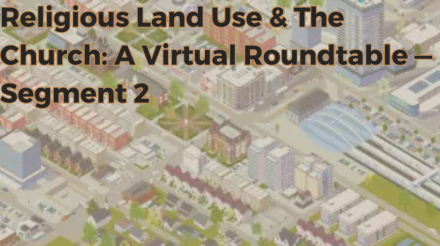The Religious Land Use and Institutionalized Persons Act (RLUIPA) was passed unanimously in 2000 by the US Congress and signed into law by President Bill Clinton. However, many church leaders remain unaware of how this law can help them avoid—or at least navigate—challenges posed by governments, agencies, and associations regarding the purchase or use of property for worship and other religious purposes.
Not yet a member? View the series introduction and one case study for free.
This five-segment virtual roundtable features attorneys Midgett Parker, John Mauck, Noel Sterrett, and Eric Treene. It explores why every church should understand the ins and outs of this valuable law. It is particularly key when confronting obstacles from local government or zoning officials or neighborhood associations.
In addition, Matthew Branaugh, an attorney and editor for Church Law & Tax, shares two video case studies regarding how RLUIPA helped two pastors successfully overcome obstacles presented by their local officials.
To get the most out of the roundtable, we suggest you download this PDF. It will help guide you through the video series and offer helpful notes and highlights for future reference.




